September 15, 2020
One million people on social media viewed a digital teach-in on voter suppression, where the Poor People’s Campaign announced it will focus its election protection program on 10 core states.
The Poor People’s Campaign: A National Call for Moral Revival brought together the brightest organizing and legal minds for the national Moral Monday: Voting is Power Unleashed! The campaign released a study showing that poor and low-income people have the power to change the political calculus of the country and now is dedicated to making sure they recognize and exercise their power.
The Poor People’s Campaign, along with Forward Justice and the NAACP Legal Defense Fund, will focus its voting rights program on Alabama, Georgia, Kentucky, Louisiana, Michigan, Mississippi, North Carolina, Pennsylvania, South Carolina and Texas.
“Nonpartisan poll monitors are the eyes and ears of polling sites in states all across this nation,” said Caitlin Swain, co-director of Forward Justice. “They’re the first responders who see the dangers in our democracy before anyone else does. And their work will be critical to unleashing the power of poor and low-income voters in this movement that votes.”
The Poor People’s Campaign’s 2020 Voter Protection Partnership will support its members and partners by:
- training key organizers and state leadership to undertake poll monitoring in their state and communities or providing referrals to poll monitoring programs that we are in partnership with.
- providing accurate public educational materials and resources to protect the vote in these 10 states.
- providing voter protection/prepared to vote materials including personal protection equipment kits to support poll monitors and voters engaged in in-person participation.
Sherrilyn Ifill, president and director-counsel of the LDF, compared voting and protecting others’ right to vote to the work of the 1960s civil rights movement — the Freedom Rides, the lunch counter sit-ins and the Selma march.
“But that is not the call for 2020,” she said. “This is the call for 2020. And this is your call. We’re giving you all the tools you need to be who you want to be in this moment in our nation’s history. When your grandchildren ask what did you do during that perilous period in 2020 when democracy was at the very brink, you will want to tell them that you were fully involved, that you were fully prepared and that you helped unleash the power of the vote.”
Democratic presidential candidate Joe Biden told the gathering that if he wins the election, ending poverty will be more than an aspiration.
Instead, “it will be a theory of change to build a new economy that includes everyone where we award hard work, care for the most vulnerable among us and release the potential of all our children, protect the planet …” Biden said.
The Poor People’s Campaign, which is nonpartisan but committed to moral policy and action, also invited President Trump to speak but did not get a response.
Biden, who said his family lived at one point in the equivalent of Section 8 housing, said the multiple crises facing the country, including the COVID-19 pandemic, “have ripped the blinders off the systemic racism that still plagues this country and denies so many of you the ability to reach your God-given potential.”
It’s not enough to recognize that democracy is sick, Rev. Barber said. Poor and low-income must rise up and take their power to the ballot box.
“Poor counties and states are not struggling because poor people have chosen to be represented by political extremists who do not serve them and their families,” he said. “They are represented by political extremists who keep them in poverty because their power has not been organized and exercised.”
In August, the Poor People’s Campaign released a study showing that in 15 states, poor and low-income people could have changed the outcome in the presidential race in 2016 if just 1% more had voted in Michigan or up to 19% more in North Carolina, Barber said.
“Galvanizing poor and low-income voters isn’t an act of charity; it is in fact what can and will save this democracy and our nation from falling into further crisis,” Rev. Barber said.
The study found there were 63 million poor and low-income voters in 2016, or nearly 30% of the electorate. Of those, 29 million voted and 34 million poor and low-income people who were eligible to vote didn’t cast a ballot.
“This is not because they are apathetic about politics, but because our nation’s politics are apathetic about poverty and the poor.” Rev. Barber said.
Rev. Theoharis said Americans have fewer voting rights than they did 50 years ago “despite people dying for those rights.”
“Our democracy is on its deathbed,” she said. “This is how we must cry power. This is how we unleash our power — our protest power, our knowledge power, our singing power and our voting power.”
Several artists/activists also joined the program, including Erika Alexander, David Oyewolo, Mark Ruffalo, Jane Fonda, Charlemagne tha God and Barbra Streisand.
Contact: Martha Waggoner | [email protected]
The Poor People’s Campaign: A National Call for Moral Revival, is building a broad and deep moral fusion movement rooted in the leadership of poor people to unite our country from the bottom up. We demand that both major political parties address the interlocking injustices of systemic racism, poverty, ecological devastation, militarism and the distorted moral narrative of religious nationalism. Our updated agenda, A Moral Policy Agenda to Heal America: the Poor People’s Jubilee Platform, addresses these issues.
“If you want justice, if you want economic revolution, you’ve got to vote. It’s not the end-all be all, but it’s a start. It’s the power of the ballot box. It’s the remedy of the dis-ease of America. It’s the beginning of treatment, healing and recovery. Vote.” Erika Alexander
